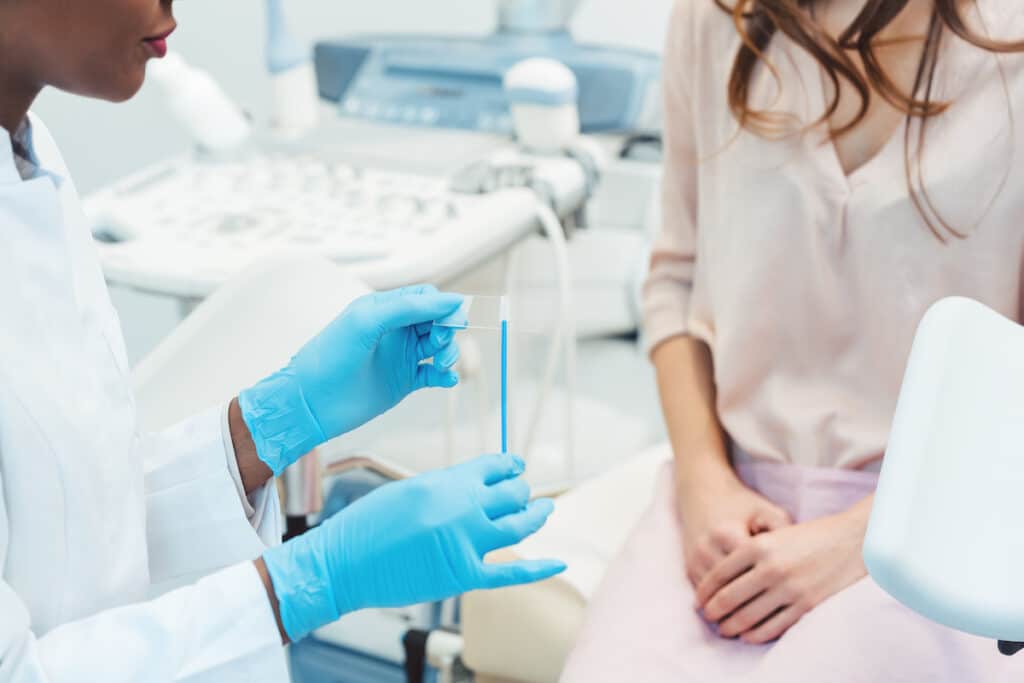


HIV 101
HIV (human immunodeficiency virus) spreads through the exchange of certain body fluids, including blood, semen, vaginal fluids, and breast milk. The virus can be transmitted during anal or vaginal sex, sharing needles or injection equipment, or from mother to child during pregnancy, childbirth, or breastfeeding if the mother is not receiving antiretroviral therapy (ART). It’s important to note that HIV cannot spread through casual contact, saliva, or by sharing food or drinks.
Safe Practices to Prevent HIV Infection
HIV is preventable with the right tools and habits. By adopting safe practices and getting tested regularly, you can protect yourself and those you love from the risk of HIV.
Use Condoms Consistently
Condoms are one of the most effective ways to prevent HIV and other sexually transmitted infections (STIs) when used correctly. They create a barrier that prevents the exchange of bodily fluids during anal or vaginal sex.
Avoid Sharing Needles or Injection Equipment
If you inject drugs, using clean, sterile needles and equipment every time can prevent HIV transmission. Avoid sharing needles, syringes, or other drug paraphernalia with others.
Get Tested Regularly
Regular testing is a critical part of HIV prevention. Knowing your HIV status—and your partner’s status—helps you make safer decisions about your sexual health. We recommend regular HIV testing for anyone who is sexually active, especially those at higher risk.

HIV Testing & Counseling
Knowing your HIV status is empowering. Regular HIV testing gives you peace of mind and helps detect the virus early when treatment is most effective. At Healthy Connections, we offer fast, confidential HIV testing and counseling in a judgment-free environment.
- Quick and Confidential: Our HIV tests are easy and discreet. You can expect accurate results, and our compassionate team will guide you through the process, whether you’re testing for the first time or have been regularly monitoring your health.
- Counseling and Support: If you receive a positive test, expect to feel various emotions. You may feel ashamed, angry, or afraid. It may help to remind yourself that you’ve done the right thing by getting tested so that you can inform your partners and get treated. We’re here to support you, and our counselors provide the information and care you need, helping you understand your options and next steps.

Consider Pre Exposure Prophylaxis (PrEP) for Added Protection
In addition to practicing safer sex and getting tested regularly, PrEP is a powerful option for preventing HIV. This daily medication is for people who are HIV-negative but at high risk. When taken as prescribed, PrEP can reduce the risk of HIV transmission by up to 99% during sex.
Undetectable = Untransmittable
If someone living with HIV maintains an undetectable viral load through antiretroviral therapy (ART), they cannot transmit HIV through sex. ART helps people with HIV manage their condition, reducing the amount of the virus in their blood to undetectable levels. This highlights the importance of both prevention and treatment in the fight against HIV.

Your Path to Quality Care
Schedule an Appointment
Meet Your Provider
Receive Comprehensive Care
Affordable Payment Options
Follow-Up and Continued Support
Visit One of Our Convenient Locations
Arkadelphia
301 Professional Park Dr., Arkadelphia, Arkansas 71923
Haskell
2323 AR-229 Suite B, Haskell, AR 72015
Hot Springs Central
3604 Central Ave., Suite D, Hot Springs, Arkansas 71913
Hot Springs Chippewa
1723 Malvern Ave., Hot Springs, Arkansas 71901
Hot Springs Village
4585 N. State Hwy. 7, Suite 11, Hot Springs Village, Arkansas 71909
Little Rock
1100 North University Ave., #200, Little Rock, Arkansas 72207
Malvern Pinnacle
1003 Scheider Dr., Malvern, Arkansas 72104
Malvern Teeter
900 Martin Luther King Blvd., Malvern, Arkansas 72104
Mena
136 Health Park Ln., Mena, Arkansas 71953
Russellville
3312 W Main St., Russellville, AR 72801
Sheridan
1409 S. Rock St., Suite B, Sheridan, AR 72150

Get the Best Care Wherever You Are with Healthy Connections Telehealth
There’s nothing worse than having to get out when you aren’t feeling well or interrupting an already busy schedule with a wait in the doctor’s office. Our telehealth service allows you to access high-quality care from anywhere with your personal device and an internet connection.
Your well-being is our priority, and we’re here to serve you with excellence and compassion. Schedule your telehealth visit today!
Frequently Asked Questions
If you are sexually active, especially if engaging in anal or vaginal sex without consistent condom use, it’s recommended to get tested at least once a year. For those at higher risk, such as those with multiple partners or sharing needles, more frequent testing may be necessary.
An undetectable viral load means the amount of HIV in the blood is so low it cannot be detected by standard tests. If someone living with HIV maintains an undetectable viral load through antiretroviral therapy (ART), they cannot transmit the virus to others during sex, making it an important goal for people with HIV.
No, PrEP only protects against HIV. To prevent other sexually transmitted infections, you should continue to use condoms and practice safer sex.
Condoms are highly effective at reducing the risk of HIV transmission during anal or vaginal sex when used consistently and correctly.
ART is the treatment for people living with HIV. It involves taking a combination of HIV medicines every day to control the virus. ART helps people with HIV live longer, healthier lives and, if taken properly, can lead to an undetectable viral load, meaning the virus cannot be transmitted through sex.
PrEP (pre-exposure prophylaxis) is a daily pill that people who are HIV-negative can take to prevent HIV infection. It’s particularly effective for those at higher risk of exposure, such as those having anal or vaginal sex with an HIV-positive partner or others who may be at risk of contracting HIV.
Yes, in most cases. We accept Medicaid, Medicare, and most private insurance plans. For those without insurance, we offer a household income-based sliding fee scale to ensure everyone can access testing and care.



















